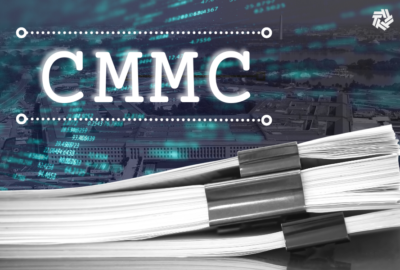House cyber workforce bill pushes two-year degrees for gov service
House Homeland Security Committee Chairman Mark Green's cyber workforce bill adds to a growing push to embrace skills-based hiring and training for cyber jobs.
House lawmakers are advancing legislation that would put the Cybersecurity and Infrastructure Security Agency in charge of a cyber scholarship program to incentivize skills-based training in exchange for government service.
The House Homeland Security Committee today approved the Providing Individuals Various Opportunities for Technical Training (PIVOTT) to Build a Skills-Based Cyber Workforce Act of 2024. Chairman Mark Green (R-Tenn.) introduced the bill earlier this week.
The PIVOTT Act would put CISA in charge of a new scholarship program for two-year cyber degrees at community colleges and technical schools. The program would grant full scholarships to students in exchange for two years of service in a cyber position a federal, state, local, tribal or territorial agency.
The program is modeled after Reserve Officer Training Corps (ROTC) programs for the military. Green had been teasing the bill as one of his top priorities this year.
“ROTC programs offer a valuable pathway for students who don’t have the opportunity to attend a military academy to begin a lifetime of dedicated military service,” Green said in a statement. “Likewise, the ‘Cyber PIVOTT Act’ opens doors for professionals seeking to ‘pivot’ to the specialty of cybersecurity without a traditional four-year degree — rewarding and supporting those who use their valuable skills to protect government networks and ensuring they’re ready to work on day one.”
The bill is intended to help bridge the national cyber workforce gap. CyberSeek estimates there are nearly 470,000 cyber job openings nationwide.
Green’s legislation would require CISA to enroll at least 250 students within the program’s first year. The legislation would also require a plan from CISA to scale the program to 10,000 students within a decade.
The legislation also emphasizes the importance of “skills-based training.” Scholarship students would be required to participate in a minimum of four skills-based exercises, such as laboratory work, hackathons, virtual programming, table-top exercises and industry training workshops.
“What sets this program apart from others is the focus on skills building,” Green said during the committee’s markup today. “We want to reduce the gap between education and real world experience so students have the skills needed to get the work done on day one.”
The White House Office of the National Cyber Director is also pushing for educators and employers to embrace skills-based training and hiring under a cyber workforce and education strategy. ONCD and the Office of Personnel Management are working to shift many federal IT jobs to skills-based hiring by next summer.
Under the bill, CISA would also be required to work with participating institutions to find internships for scholarship students. The internships could be in a cyber role at any level of government or within a critical infrastructure organization. The program would also accelerate the security clearance process for participating students.
Those who graduate with a two-year degree would be allowed to pursue a four-year degree before fulfilling their government service. It also provides an exception to the service requirement for member of the military.
DHS cyber internship program
The homeland security committee today also approved the “DHS Cybersecurity Internship Program Act,” introduced by Rep. Yvette Clarke (D-N.Y.). The bill would codify DHS’s summer-long, paid cybersecurity internship program.
“Internships focus on DHS mission areas and include identification and analysis of malicious code, forensics analysis, incident handling, intrusion detection and prevention, software assurance, data management, cloud/web services, and network operations,” DHS’s website states.
House passes DHS cyber training bill
The House this week also passed the “DHS Cybersecurity On-the-Job Training Program Act.” The bill would establish a program at CISA for training non-cybersecurity personnel in cyber skills. The bill was introduced by Rep. Sheila Jackson-Lee (D-Texas), who died earlier this year.
Homeland Security Committee Ranking Member Bennie Thompson (D-Md.) lauded passage of the bill, saying it could help DHS fill thousands of open cyber jobs.
“With cyber threats from adversaries like Russia and China on the rise, filling those vacancies is a national security imperative,” Thompson said in a statement. “Training existing DHS personnel who have already been vetted is a critical part of ensuring DHS has the cybersecurity talent necessary to fulfill its critical cybersecurity mission.”
Copyright © 2024 Federal News Network. All rights reserved. This website is not intended for users located within the European Economic Area.
Follow @jdoubledayWFED






